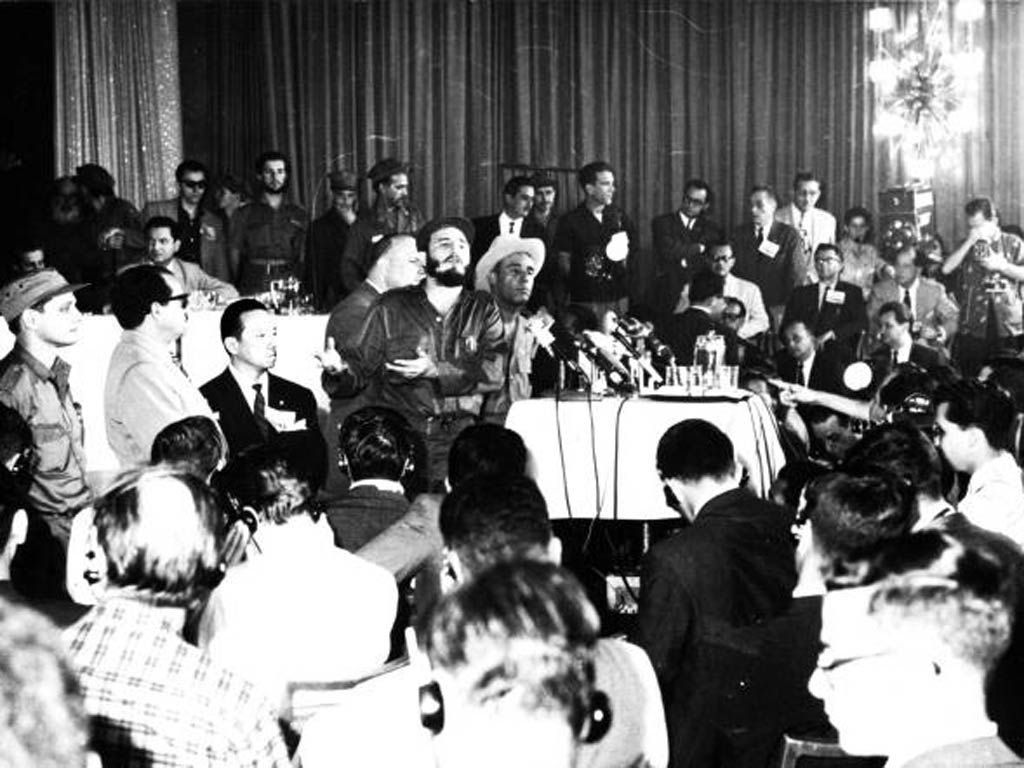The former in 1959, under Fidel Castro’s leadership, and the latter in 1971, headed by Salvador Allende, called for “Operations Truth” in the light of Washington’s media hostility, so they became examples of resistance for the so-called current alternative media due to similar disinformation campaigns.
Such a manipulation, which emerged with the United States itself in 1776 and developed with its expansion to the West and South, was supported by the interventionist Monroe Doctrine (1823) to influence Latin America.
For decades, mainstream media and the so-called entertainment industry in the United States provided, exclusively and in their own way, global information to Latin American press.
According to the United Nations Educational, Scientific and Cultural Organization (UNESCO), in 1964, the United Press International (UPI) and the Associated Press (AP), together, had more than 400 correspondents and thousands of reporters around the world, especially in Latin America.
Just 20 days after the revolutionary triumph in Cuba on January 1, 1959, Havana tried to break that information monopoly by hosting the first Operation Truth, which was described at the time as the largest international press conference in the world, and was attended by some 400 foreign reporters.
They did so to learn about the reality of the new political process and to witness the public trials of the repressors from the overthrown Fulgencio Batista regime, who had been accused of numerous murders and torture.
At that mass two-day meeting, Fidel Castro denounced the fake news from various US media outlets as part of a campaign that he described as “the most infamous, most criminal and most unjust that has been launched against any people.”
He also denounced that “the press in the Americas should be in possession of means that would allow it to know the truth and not be a victim of lies.” So, the Latin American News Agency Prensa Latina S.A., the first alternative media outlet in the region, close to celebrate its 65th anniversary, was established on June 16, 1959.
The second Operation Truth in the region was headed by the then Chilean President Salvador Allende in 1971, when he invited several foreign intellectuals to witness the beginning of “the Chilean path to socialism,” a process that Washington’s destabilized and liquidated in 1973 with a bloody military coup staged by Augusto Pinochet.
On the occasion, Allende warned that for months, reactionary sectors in the country had “used all the most despicable methods and expedients to prevent us from reaching the government.”
He stressed that “the media belong to powerful sectors linked to industry, banking, and large estates,” and especially denounced the newspaper El Mercurio, which played a key destabilizing role.
The newspaper’s owners, “know that with the popular government not only their banks, but also some of their industries will go to the State. Therefore, we understand perfectly well that El Mercurio does not applaud us,” Allende said.
Currently, the prolonged persecution of journalist Julián Assange, confined for more than a decade for telling the truth without fear and who might be extradited to the United States to spend 175 other years of isolation, has origins in that same media subversion by the United States, of which there are many other examples.
For this reason, amid the “Information Age,” several journalists and researchers fear that, with Assange’s possible death in prison, many truths will remain hidden, so they daily underline the need to hold new and continuous Operations Truth.
jg/ro/mar/jl









